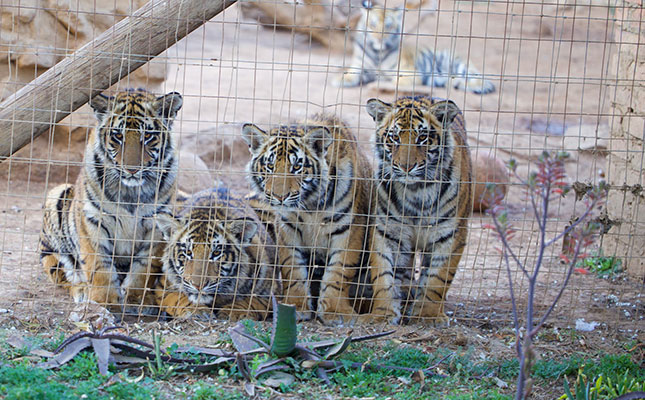
Photo: FOUR PAWS
Animal welfare organisation FOUR PAWS is urging government to include all big cat species, including tigers, in its new protective legislation for lions, and prohibit the commercial trade in all big cats and their body parts.
According to Fiona Miles, director of FOUR PAWS in South Africa, a recent report by the organisation showed that the lack of effective regulations concerning the private breeding and commercial trade in live big cats from South Africa was perpetuating the illegal wildlife trade and contributing to the decline of big cat populations across the globe.
“The call for the inclusion [in the legislation] of all big cats came after the report revealed a significant commercial trade in live big cat species, including lions, leopards, tigers and jaguars, as well as their parts, from South Africa,” she said in a statement.
This followed an announcement by Minister of Forestry, Fisheries and the Environment Barbara Creecy in May 2021 that government would put a stop to the captive breeding of lions, elephants and leopards.
Government had also decided to phase out captive rhino breeding. Miles added that the lack of effective regulations, laws and monitoring of the big cat trade in South Africa was “sentencing these species to a life of commercial exploitation, where they would be killed for their use in luxury goods and traditional medicine”.
“The lack of effective regulations for species like tigers, combined with the existence of a legal captive lion industry and bone trade, has allowed a legal industry to flourish, whilst also acting as a conduit for an illegal trade,” she said.
The principal author of the report, Kieran Harkin, said it was clear that South Africa was overtly allowing tigers and other big cats to be intensively bred for a commercial trade in their body parts.
“South Africa is playing a significant role in contributing to the decline of a species that isn’t native to Africa. [Government] needs to shut this industry down to help reverse the decline of all big cat [numbers],” he said.
According to the report, South Africa exported tigers to Vietnam, China and Thailand, all of which were renowned hotspots for the illegal trade in live tigers and their parts.
Vietnam imported a total of 75 live tigers, China 45, and Thailand 42 between 2011 and 2022.
Read the full report here.













